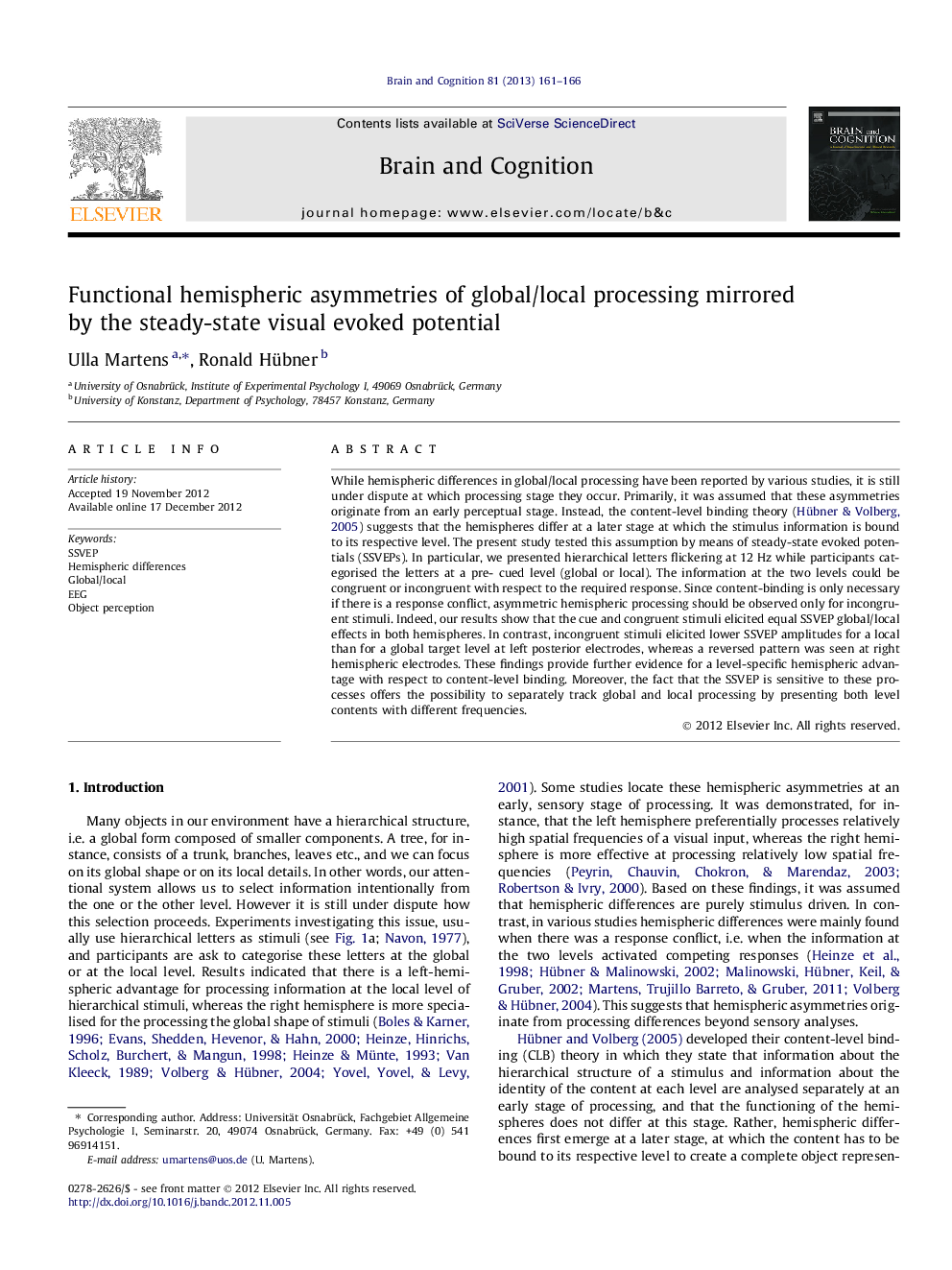| Article ID | Journal | Published Year | Pages | File Type |
|---|---|---|---|---|
| 924098 | Brain and Cognition | 2013 | 6 Pages |
While hemispheric differences in global/local processing have been reported by various studies, it is still under dispute at which processing stage they occur. Primarily, it was assumed that these asymmetries originate from an early perceptual stage. Instead, the content-level binding theory (Hübner & Volberg, 2005) suggests that the hemispheres differ at a later stage at which the stimulus information is bound to its respective level. The present study tested this assumption by means of steady-state evoked potentials (SSVEPs). In particular, we presented hierarchical letters flickering at 12 Hz while participants categorised the letters at a pre- cued level (global or local). The information at the two levels could be congruent or incongruent with respect to the required response. Since content-binding is only necessary if there is a response conflict, asymmetric hemispheric processing should be observed only for incongruent stimuli. Indeed, our results show that the cue and congruent stimuli elicited equal SSVEP global/local effects in both hemispheres. In contrast, incongruent stimuli elicited lower SSVEP amplitudes for a local than for a global target level at left posterior electrodes, whereas a reversed pattern was seen at right hemispheric electrodes. These findings provide further evidence for a level-specific hemispheric advantage with respect to content-level binding. Moreover, the fact that the SSVEP is sensitive to these processes offers the possibility to separately track global and local processing by presenting both level contents with different frequencies.
► We measured SSVEPs to test the CLB theory of hemispheric differences. ► Results demonstrated the SSVEP’s sensitivity to functional hemispheric asymmetries. ► Global targets elicited right and local targets left hemispheric SSVEP reductions. ► All assumptions of the CLB theory were met by the results.
